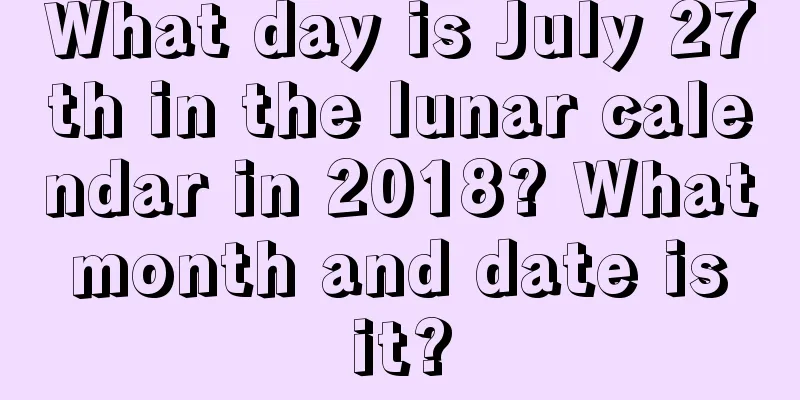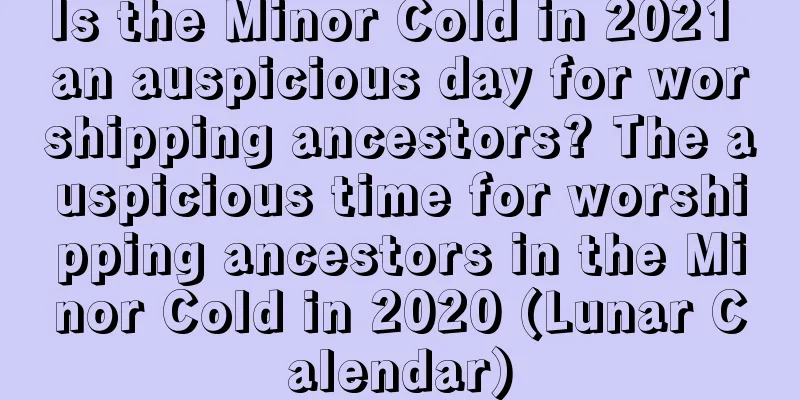When is Cold Dew? What does the solar term after Cold Dew mean?

When is Cold Dew? What does the solar term after Cold Dew mean? The ninth month of the lunar calendar is the time when maple forests are dyed in all colors. Let’s celebrate with the country and have fun with the people. Learn about every day of the ninth month of the lunar calendar in 2019 with Shuimoxiansheng.com.When is Cold Dew?Cold Dew is the seventeenth solar term in the twenty-four solar terms and the fifth solar term in autumn, marking the official end of the autumn season. Cold Dew is a solar term that reflects the characteristics of climate change. Cold Dew, White Dew and Frost Descent all represent the condensation of water vapor, and Cold Dew is the transition of climate from cool to cold. Compared with the White Dew, the temperature has dropped a lot, and the dew on the ground is also colder, and it is very likely to become frozen dew, so it is called Cold Dew. When the sun reaches 195 degrees of ecliptic longitude, it is Cold Dew. The Cold Dew solar term usually falls on October 8 or 9 of the Gregorian calendar every year. From the perspective of climate characteristics, during the Cold Dew season, most areas in the north have entered autumn, the northeast has entered late autumn, and some areas in the northwest have entered or are about to enter winter. Autumn is getting thicker in the southWhat does the solar term after Cold Dew mean?After Cold Dew, there are Frost Descent, Beginning of Winter, Light Snow, Heavy Snow, Winter Solstice, Lesser Cold and Greater Cold. Frost:Frost Descent is one of the 24 solar terms. The Big Dipper points to Xu; the sun's ecliptic longitude is 210°; the solar term falls on October 23-24 of the Gregorian calendar. It represents the weather getting colder and the beginning of frost and winter: Beginning of Winter is one of the 24 solar terms. It occurs when the Big Dipper points to the northwest and the sun's ecliptic longitude is 225°. It falls between November 7 and 8 in the Gregorian calendar. The symbolic meaning is that the winter begins with light snow: Xiaoxue is the 20th solar term in the 24 solar terms. The time is November 22 or 23 of the Gregorian calendar every year, when the sun reaches 240° of the ecliptic longitude. It represents a high frequency of cold waves and strong cold air activities, and heavy snow: Heavy Snow is the 21st solar term in the 24 solar terms and the third solar term in winter. It snows heavily, the Big Dipper points to Gui, and the sun reaches 255 degrees of ecliptic longitude. The solar term occurs on December 6-8 of the Gregorian calendar every year. It means the weather will get colder and colder, and the possibility of snow will increase . Winter Solstice: The Winter Solstice, also known as the Winter Festival, the Sub-New Year, the Longest Day Festival, etc., has both natural and humanistic connotations. It is not only an important solar term among the 24 solar terms, but also a traditional festival among the Chinese people. On the winter solstice, the Big Dipper points to Zi, and the sun's ecliptic longitude reaches 270°. It falls on December 21-23 of the Gregorian calendar every year. Minor Cold: Minor Cold is the 23rd solar term in the 24 solar terms and the 5th solar term in winter. The Big Dipper points to Zi; the sun's ecliptic longitude is 285°; the solar term falls on January 5-7 in the Gregorian calendar. Minor Cold marks the official beginning of the winter season. The Great Cold represents the beginning of the coldest days of the year. Dahan is the last solar term among the 24 solar terms. The Big Dipper points to Chou; the sun's ecliptic longitude is 300°; the solar term falls on January 20-21 of the Gregorian calendar. It means the weather is extremely cold and the coldest period is coming. People often say "one decade of great fortune". Every year, good luck turns to bad luck and bad luck turns to good luck. So, if you want to know your own fortune, just click on the [Quality Calculation] below! |
Recommend
Is January 30th of the lunar calendar in 2019 an auspicious day for installing a bed? Analysis of the six taboos of bed installation Feng Shui!
Introduction: According to the traditional customs...
Is it auspicious to start groundbreaking for house renovation on August 26, 2019, one day after the autumnal equinox?
Introduction: It is also necessary to choose an au...
Is the seventh day of the twelfth lunar month in 2021 a bad day? Can I have a caesarean section?
The twelfth month of the lunar calendar is the end...
Is the Autumnal Equinox a good day? What is the hexagram of this day?
White Dew comes early, Cold Dew comes late, so it ...
Why is Mid-Autumn Festival called the Reunion Festival and why is Mid-Autumn Festival called the Daughters' Day?
Introduction: The 15th day of the eighth month of ...
Is the Spring Equinox of 2018 a good day? Is it appropriate to burn incense and pray for blessings during the Spring Equinox of 2018?
Introduction: Burning incense and praying for bles...
Are boys born on September 23, 2021 in the lunar calendar lucky? What is their fate?
September is known as late autumn, late autumn, qu...
What day is the 14th day of the first lunar month in 2019? What month and date is it?
The first month of the lunar calendar is an impor...
What does it mean to see the wheat tips turn yellow during Grain Full? Will the second day of Grain Full in 2020 be a good day?
Introduction: There are many customs and tradition...
Is the fifth day of the seventh lunar month in 2019 an auspicious day? What is the fate of a boy born on the fifth day of the seventh lunar month?
The day we are born determines our future characte...
Is it a good time to move house on the 12th day of the seventh lunar month in 2017? Can I move into a new home?
1. What day is July 12 in the lunar calendar of 2...
Is the 2018 Little New Year suitable for starting renovations? What are the considerations?
Chinese people have always been particular about t...
Is it a good idea to open companies and stores on May 30th of the lunar calendar in 2020?
Is it a good idea to open companies and stores on...
How is the 20th day of April in the lunar calendar in 2022? Can I start renovation?
There are certain rules for choosing the time to s...
What are the precautions for the Great Heat? What are the do's and don'ts to pay attention to?
Introduction: The Great Heat falls during the hott...









